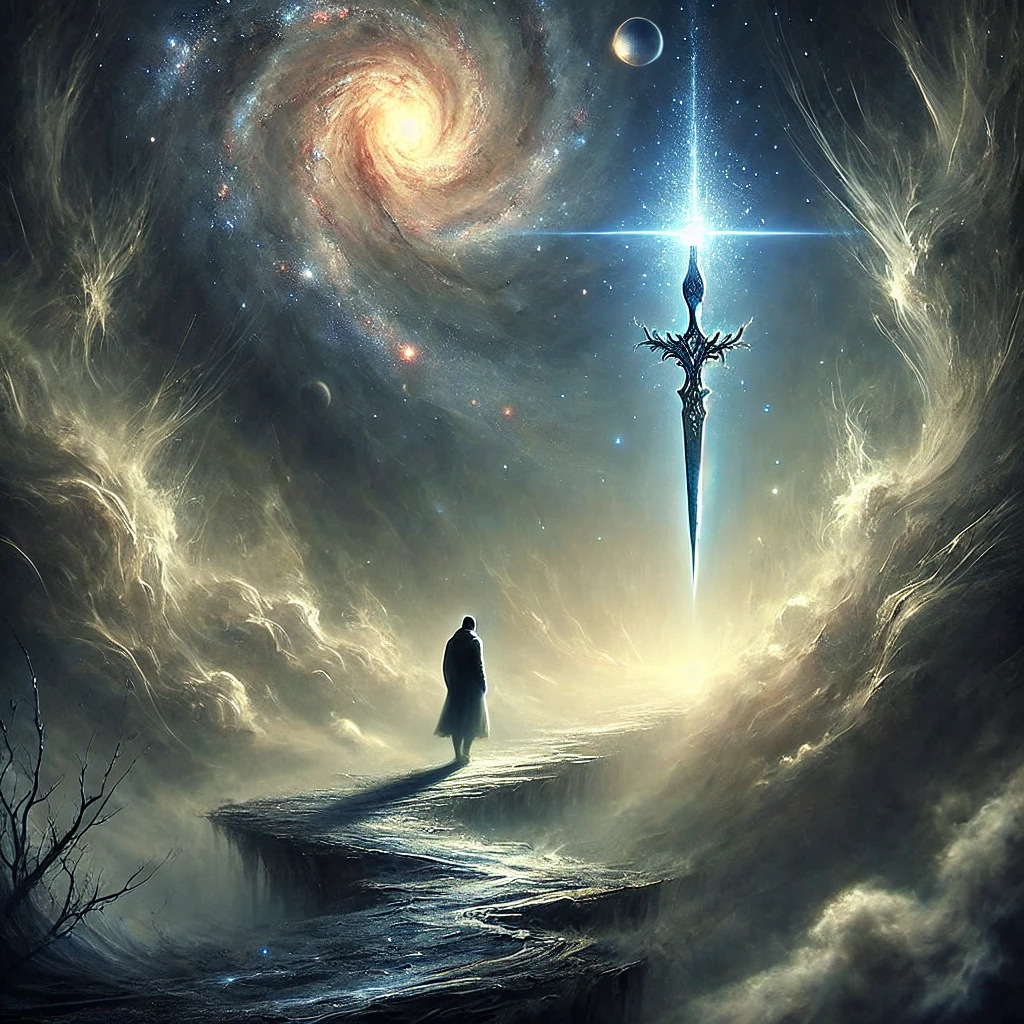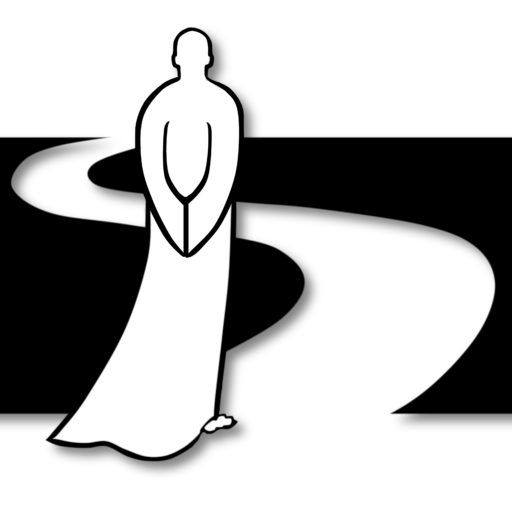
"The thorn in my side deepens
with every breath
and has become a knife;
deftly wielded by an invisible hand,
it prods me on to continue my journey;
it is my lover and my most hated friend.
My mind is full of awe and wonder for things I can never understand.
My soul cannot separate from mysteries better left to those who understand such matters while
I wander in anticipation of my beloved
I am a fool returning to every celebration.
Through the invisible pain, I celebrate;
the pain deepens and I am satisfied,
again my soul is filled
with awe and wonder for things I can never hope to understand."
~Fr. Kenn (Mateo) Nelan, osfc - 2016.
I’m not sure, but regardless of why it started, I watched the memories flooding by as I sat blurry-eyed remembering the days I wandered through the sacred mazes towards the main chapel where Mass was celebrated each day at the same time – 7 am. Funny, looking back at those days I distinctly remember that not one seminarian I got to know over those five years ever mentioned their draw to the Eucharist. For me, it was a passion – for them a schlep, or so it seemed based on their huffing and crossed arms. Time after time they would tell me – me of all people, “If you don’t go to daily mass it counts against you and you might not make it through the program.”
Even some of the priests… I remember one in particular who outright refused to celebrate saying it was a waste of his time. I remember the anger in his voice and the resentment that he had to wear a collar when bishops were in town. Sitting in his class I often wondered why he was so angry and vitriolic. What had the priesthood done (or didn’t do) to him that made him this way? And there were so many priests who were like him. Don’t get me wrong, there were many good priests and instructors, and there were the usual dramatic actors who were drawn to the priesthood because they loved to be in the spotlight. But the ones that broke my back – the ones with the master keys who would cuddle up to the pretties in the middle of the night. I knew what drew them to such a life. But we, at least, were adults; second careers they called us. Still, it was supposed to be a place where men were formed to follow in the Christ’s footsteps – not the devil’s.
I lived in a microcosm of society and sadly every facet was represented.
By the second suicide, I had enough and had to leave. It took me years to fully recover from that experience. I think a part of me is still there wanting to help and heal those who were suffering so deeply.
Getting back to the Eucharist. I’ve always said I don’t “say” mass – I CELEBRATE Mass, and not just during that one hour every Sunday. I try to celebrate the Eucharist every moment of every day, not that I succeed. In fact, I think I fail miserably just about every moment of every day! I think that’s a part of the human condition, that we return to something time after time to improve our odds of getting it right one day. I guess I’m still waiting for that day the sparklers and fireworks go off in celebration of the moment I get it right.
Throughout my childhood, adolescence, and adulthood – right up until the day I was ordained, throughout all the hardships I endured, and even throughout all I have been through as a priest in the independent movement, I could never imagine a world without the Holy Eucharist. I still can’t. It is a part of my soul – it tortures and consoles me. The Eucharist is always in my mind, calling me with every breath I take to participate in a single healing moment that spans thousands of years – God’s love for us and the ultimate sacrifice of that love.
When I think about it, our God sacrificed existence itself to live as we live – to BE frail and weak in comparison. But the Creator is all-knowing, right?! God already knew what it was to be us, so why? Because knowing a thing and experiencing a thing are two very different things. When we truly experience a thing, that is to say when we allow ourselves to be so completely immersed in something we begin to truly understand its essence – its BEingness. God already knew our humanity long before becoming us, but experiencing a thing is different than knowing.
Going back to the Eucharist, knowing that the Divine presence is there in that host isn’t the same as allowing one’s self to exist in a moment of co-creation with the Divine, of allowing one’s self to be so completely immersed in the experience of the full presence of God. In that one brief moment, time stops and there is only the everlasting moment our God shared in our humanity. Then, in a fit of love we may never understand, God turned back to creation having fully experienced the human condition – having fully experienced our brokenness and need for redemption. God returned to creation with the understanding that it is difficult breaking away from our animalistic nature.
Looking back on my seminary days I now understand that though many are called, few will ever experience the true meaning of what it is to be enveloped in the mystery of the real presence of the Eucharist. And I have to accept that for many, that is not their calling. It is, however, my joy and curse to experience such wonders every time I celebrate. For me the priesthood is so much more than the celebration of a moment in time I wish could last forever. It’s about BEcoming. My priesthood is about BEcoming the teachings imparted to us by a wandering Soul seeking to understand the human condition. It is about the core of our BEingness, which if lived, can bring great change to our communities and the world.
Our God, as Christ, walked this earth BEing an example of how to live, and when necessary he breathed into life the spoken word – ever so softly – to those who would listen; something Francis not only recognized, but himself celebrated, inspired, and lived in the Rule: “Let all the brothers, however, preach by their deeds" (Chapter XVII of the Franciscan Rule of 1221).
The Christ’s teachings were simple! Be compassionate, loving, forgiving, understanding, and so much more. Don’t just preach these things, but actually live and model the teachings as the Christ did every moment of every day.
At the core of +His teachings were:
Love God,
Love everyone around you,
Forgive,
Tend to others' needs,
Be compassionate with others and yourself,
Serve,
Be Humble - Don't Boast about what you've done,
Be mindful of how your journey affects those around you,
Remember that life is sacred,
Never turn to violence to solve problems,
Don't judge others – you are not perfect either,
Treat others the way you want to be treated – no matter who they are,
Don't ever build yourself up by putting others down!
They are simple teachings and yet they are the most difficult things we will ever incorporate into our BEingness. But instead of following the teachings, we have instead opted to remember our Christ through the celebration of the last day of +His sacred physical presence – the Cenacle meal and subsequent descent of the Holy Spirit.
Every Sunday we gather to remember +His teachings, to remember +His life, to remember +His service, and to remember +His call to serve our fellow human beings with the same dignity, respect, and love we show Jesus. And then most of us go home forgetting everything we just learned.
Again, many are called, but few…
"I hear your call, but I walk with trepidation.
Both the seen and unseen are strong motivators
for a want of change towards a healthier expression of faith – and yet...
I, for one, have doubt.
I am the Thomas needing to place my hands in the wounds,
which sometimes causes me great distress.
I should be willing to see and feel without seeing or feeling,
or at least be willing to see beyond the obvious into the depths of love and unconditional acceptance.
I pray, Blessed Creator, that my Sisters and Brothers may forgive my moments of weakness so that we
may continue to walk forward into our roles as living examples of our Christ - as +He taught us."
~ Fr. Kenn (Mateo) Nelan, osfc - 2016
Every week we gather in carefully adorned establishments where like-minded (and some not so like-minded) gather in celebration of a Life long ago shed for the understanding of our existence and forgiveness of sin. At each and every celebration, an offering of life is made and a rededication of service is promised. But time and again we return broken and suffering looking for healing that only the Eucharist can provide. During the week we stumble and fall, but we always return at some point to the one place we know forgiveness exists.
Each time we attend the Sacred Meal, our Christ is there waiting for us to become co-creators in the teachings. Each morsel of Host we take into ourselves is a chance at redemption and a chance to change our ways so that we may live as our Christ did so many years ago. Every celebration of the Holy Eucharist is a moment of hope and an opportunity for awakening into a new way of BEing.
Every time I celebrate the Eucharist I cry. It's something with which I have struggled ever since I can remember. In the pews, it is easy for me to hide, but at the table, it is sometimes difficult to hold back the rivers when I take +His sacred presence into my hands. The Eucharistic Celebrations are deeply personal for me, probably more so than I will ever fully comprehend. Somewhere deep inside I just know that the Eucharist is the center of my priesthood and of my very existence.
In homes throughout the world, meals are celebrated as peace offerings; where people gather to learn about, gain trust with, celebrate the lives of, and become one with anyone present at the offering table. Differences are set aside and for a brief moment the world stops. Enemies come together at a meal shared in the sacredness of the moment, and when defenses are down and compromise can be made. Nothing else in the world exists at that moment except for the celebration of friends and family – no matter who is present. So it is with the Celebration of the Eucharist.
I don't know about you, but I still can not imagine having a call to the priesthood, being called to service within the church, or even sharing my life as a parishioner without having a special dedication to the Eucharist – that sacred meal that brings all people together and heals us so completely every time we participate in creation. This isn't a club – it is a humbling and soul-bearing Service to the People of God – if we let it…
In our priesthood, there are many types of service. Some were called to be administrators, educators, and politicians; whereas others were called to be healers, teachers, and servants. Each person is called to dedicate themselves in some way to experience the Christ in the lives of every person they encounter.
